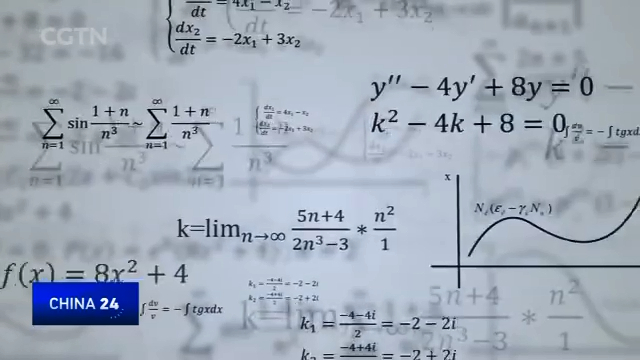
21:21, 14-Jun-2018
China-US AI Technological Cooperation: Is there really a technology war?
04:01

Both China and the US consider artificial intelligence critical to their future development. Some people even call AI development in both countries a new kind of arms race. Is there really a technology war? CGTN's Ge Yunfei has more.
On June 5th, one of the most important events in the world's tech industry was held here.
GE YUNFEI SAN JOSE, CALIFORNIA "Right behind me is the San Jose Convention Center in which this year's Apple developer conference WWDC is underway. China is Apple's 2nd largest market after the U.S. - and the company is facing major challenges from local Chinese competitors like Huawei and Xiaomi."
So far, Chinese consumers appear unimpressed with Apple's new function called Memoji. It's an update on iPhone with tongue detection, new characters, and the ability to create a custom Animoji. The technology behind Memoji is based on artificial intelligence. In fact, from smart phones, healthcare, transportation to gaming, AI has already infiltrated every aspect of our lives. Talking about the importance of AI, Russian President Vladimir Putin said this last year-"Whoever becomes the leader in this sphere will become the ruler of the world." Tim Bajarin is a Silicon Valley analyst, who has been following the tech industry over the past 37 years. Witnessing AI development here, Tim said the future of AI is in the U.S. and in China.
TIM BAJARIN, PRESIDENT CREATIVE STRATEGIES "I actually think it'll be a two-horse-race race. I don't think it'll be a one-win or another. I think both of them, both of the countries will play leadership roles."
Tencent's "WANG ZHE RONG YAO" or King of Glory is China's most popular mobile game. Tencent says 70 million people play it every day, and that gives the company a big advantage in AI development. Its AI department is training artificial intelligence programs to play King of Glory.
FORREST YAO, VICE PRESIDENT TENCENT "We have a bigger population than the U.S., which means we can generate more data. And, in fact, in AI applications, I think China is not weaker than the U.S. and may be even better."
China has the world's largest population of 1.4 billion people. Another advantage-Alibaba says China may also have the world's most open-minded attitude toward AI.
HUA XIANSHENG SENIOR DIRECTOR OF ARTIFICIAL INTELLIGENCE, ALIBABA "China is moving very fast in developing various AI applications. In China, people are very open-minded toward AI, and are willing to try different methods. This is a very good attitude. So I think that's why AI-related industry is so vibrant in China."
But in fact, there is a growing concern in the U.S. that Chinese advances in AI could erase America's decades-long supremacy in technology. A fear expressed in Trump administration trade conflicts with China over intellectual property and in visa restrictions against Chinese students studying cutting-edge technologies in the U.S..
TIM BAJARIN, PRESIDENT CREATIVE STRATEGIES "I agree that data is important, but the power to manage and create the data is equally important. So, for example, the most powerful semi-conductors that are designed for AI are still fundamentally produced here. They're being done by Nvidia. They're being done by IBM and they're being done by Intel."
FORREST YAO, VICE PRESIDENT TENCENT "I think the U.S. is still leading ahead of China in terms of the composition of talents in fundamental research. Their AI talent training system has a long history and has lots of subdivisions like mathematics, statistics, machine learning, data mining and robotics. But in China, we only started the training system several years ago."
Experts say the AI competition between U.S. and China is still driven by companies and universities rather than by governments. So, the alleged Cold War in AI may be exaggerated. Ge Yunfei, CGTN, from the Silicon Valley in California.

SITEMAP
Copyright © 2018 CGTN. Beijing ICP prepared NO.16065310-3
Copyright © 2018 CGTN. Beijing ICP prepared NO.16065310-3